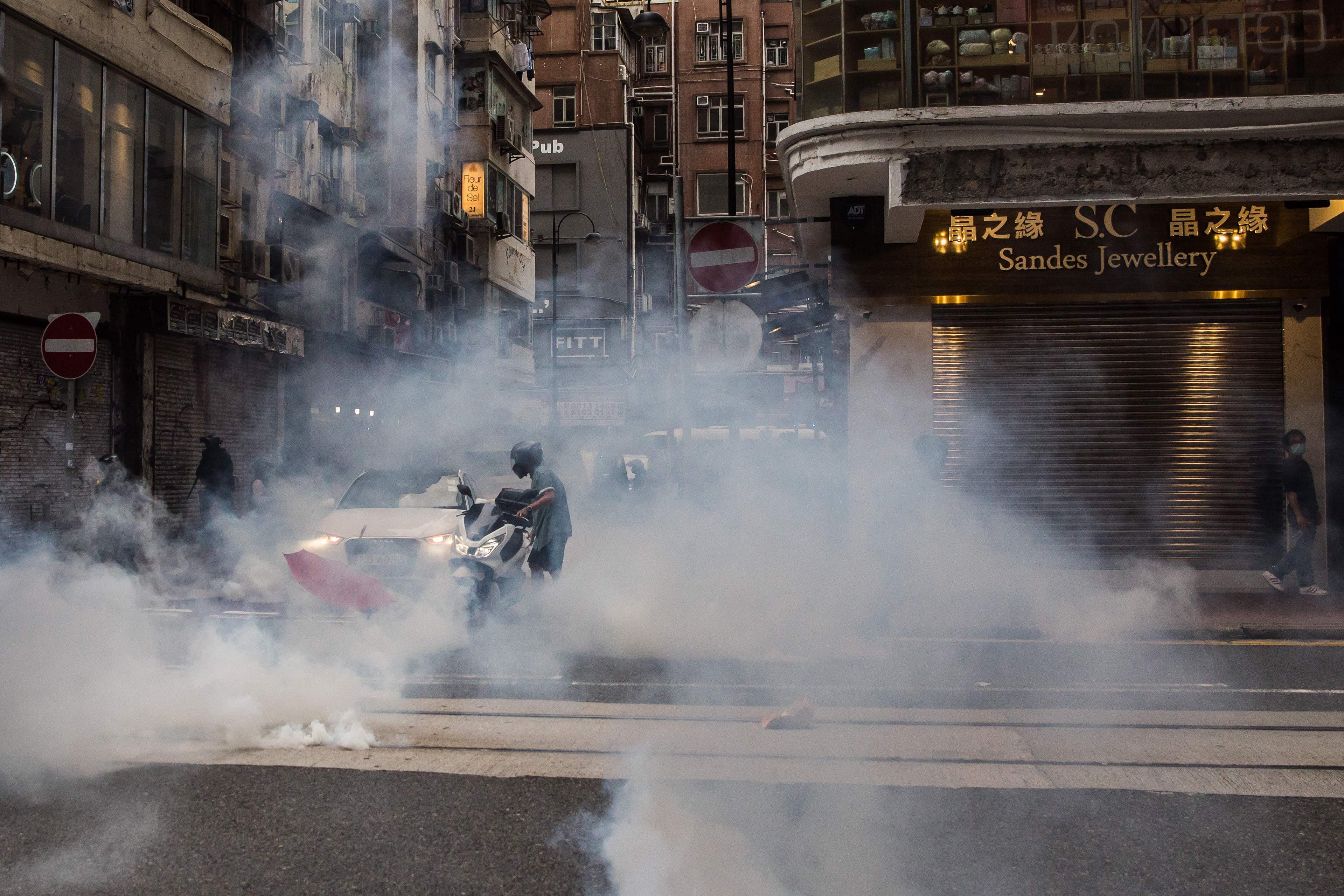It is likely to usher in a new era for Hong Kong, experts say, in which civil liberties are tightly constrained and loyalty to the party is paramount. Credit: AFP Photo
Under the new law, damaging government buildings would be considered an act of subversion punishable by life imprisonment in “grave” cases. Sabotaging transport would be deemed a terrorist activity punishable by life in prison if it harms other people or causes significant damage to public or private property. Credit: Reuters
The four major offenses in the law — separatism, subversion, terrorism and collusion with foreign countries — are ambiguously worded and give the authorities extensive power to target activists who criticize the party, activists say. Credit: AFP Photo
Hong Kong’s residents have long cherished the city’s independent judiciary, a legacy of British colonial rule that stood in stark contrast to the secretive, party-controlled courts in mainland China. Credit: AP
Under the security law, however, Beijing has given itself wide latitude to interfere in Hong Kong’s legal affairs. The legislation will install in Hong Kong a formidable network of security forces controlled by Beijing, including a national security agency, a national security committee and a special prosecutorial office. Credit: AFP Photo
The new rules apply even to those who are not residents of Hong Kong, suggesting that foreigners who support independence for Hong Kong or call for imposing sanctions on the Chinese government could be prosecuted upon entering Hong Kong or mainland China. Credit: AFP Photo
Under the legislation, the central government in Beijing can intervene in national security cases, especially during crises or if a case is deemed “complex.” The law says defendants in important cases could stand trial before courts in mainland China, where convictions are usually assured and penalties are often harsh. Trials involving state secrets could be closed to the news media and the public. Credit: AFP Photo
Several parts of the security legislation take aim at the perceived role of foreigners in political activism in Hong Kong. Chinese officials have spread unfounded conspiracy theories suggesting that Western countries are funding and directing the activists. Credit: AFP Photo
“The law’s broad extraterritorial scope could well have a chilling effect on overseas NGOs, limiting their ability to partner with Hong Kong groups on sensitive issues like human rights and political reform.
Hong Kong was under UK jurisdiction until Britain handed it to China in 1997 with a guarantee that Beijing would preserve the city's judicial and legislative autonomy for 50 years. But critics say the new security law, passed by Beijing's rubber-stamp parliament this week, tests the limits of a
The laws, for example, make several references to
Authorities can surveil and wire-tap persons suspected of endangering national security. Credit: AFP Photo
Hong Kong police made their first arrests under a new national security law imposed by China's central government, arresting at least seven people suspected of violating the legislation during protests on Wednesday. At least two people were arrested for carrying flags and signs calling for Hong Kong's independence. Credit: Reuters
Published 01 July 2020, 12:22 IST

.jpg)










